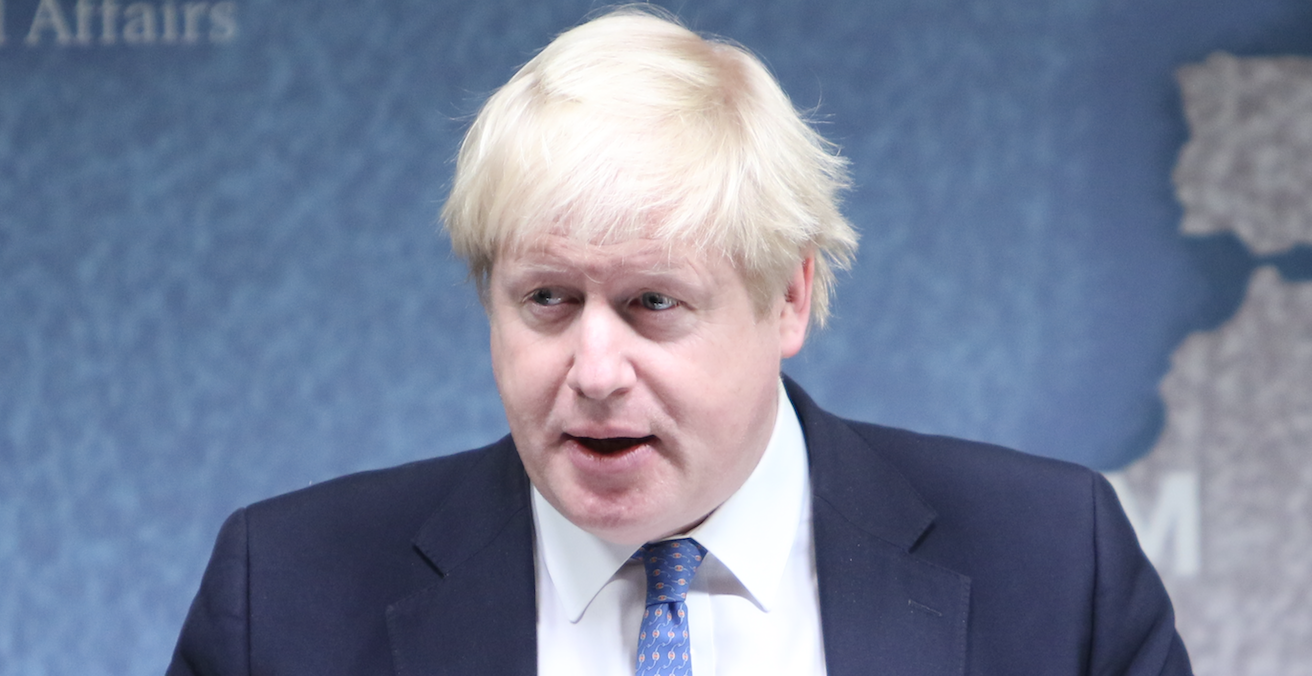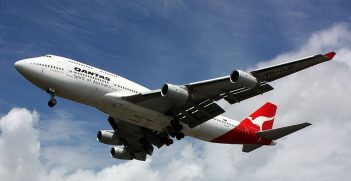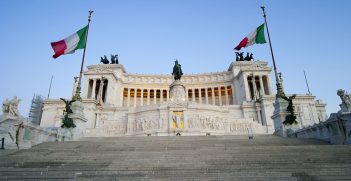The UK’s Tory Leadership Contest: Boris Johnson and Brexit

On 20 June the candidates for Britain’s next prime minister were whittled down to only two contenders. While Boris Johnson, the likely next leader of Britain, over-promises on Brexit, he is backed the Australian Sir Lynton Crosby who is buffering his most buffoon-like behaviour.
He is of Turkish ancestry but was born in New York. He is metropolitan, cosmopolitan, and fluent in several European languages. Yet some label him a buffoon. He once claimed that Queen Elizabeth II had come to love the Commonwealth of Nations “partly because it supplies her with regularly cheering crowds of flag-waving piccaninnies.” He has described veiled Muslim women as “letterboxes.”
Yet for all his political incorrectness, he has also been a successful Mayor of London for two terms; an assistant editor and columnist of the Daily Telegraph, Britain’s leading broadsheet newspaper; an editor of the Spectator magazine; a Conservative MP and, briefly, foreign secretary in Theresa May’s government.
Boris Johnson is well on his way to becoming the United Kingdom’s prime minister when the Tory party’s lumbering and undemocratic selection process concludes in late July. A series of votes by 313 Tory MPs has whittled 11 leadership candidates down to four. Among those already eliminated are both women contenders, Andrea Leadsom and Esther McVey, ministers in Mrs May’s government.
On 20 June this was further narrowed down to only two contenders: one of whom was inevitably going to be Mr Johnson. Jeremy Hunt, the foreign secretary, narrowly beat rival Michael Gove in the final Tory MPs ballot on Thursday and will now go head to head with Boris Johnson in a poll of 160,000 Conservative party members who will vote in four weeks time to decide who will be UK prime minister. But Johnson, in the most recent MPs ballot, ended with more than double the number votes as Hunt.
The final choice of prime minister will be made by a secret postal ballot of the Conservative Party’s 120,000 members.
Barring some totally unexpected twist of fate, Mr Johnson’s emergence as UK premier will be an astonishing comeback and triumph for Sir Lynton Crosby, the Australian who masterminded David Cameron’s stunning victory for the Tories in 2015. Crosby fell out badly with Theresa May’s joint chiefs of staff in the dismal 2017 general election campaign. Having guided Mr Johnson to victory in two London mayoral contests, Crosby is again “backing Boris” for the top job. He is keeping tight control on his client’s public appearances, especially limiting potentially tricky interviews with broadcasters most likely to ask penetrating questions.
Like former Tory Cabinet minister and Great Railway Journey presenter Michael Portillo, Crosby has advised Boris Johnson to make up his mind whether he wants to be a politician or a comedian.
During the early rounds Mr Johnson has been gaffe-free, even if his few public appearances have been less than remarkable. At his campaign launch last week only six journalists, all of them British, were allowed to ask a question, and the microphone was snatched away from each of them: an old public relations trick to prevent follow up questions. Needless to say, not one straight answer was offered. Mr Johnson deflected a question about a magazine report that he had sniffed cocaine while an Oxford undergraduate, saying people are more interested in his plans for Britain’s brilliant future. He went on to explain how he would deliver Brexit by October 31, allowing the country to march forward as a global power. The radio presenter Eddie Mair, who once called Mr Johnson a “nasty piece of work” in a face-to-face BBC interview, later satirised the exchange by playing a brass band rendition of the hymn “Jerusalem” as a backdrop to Johnson’s soaring rhetoric. His only other significant public appearance was as one of six candidates in a one-hour BBC TV debate last Tuesday. One MP scornfully compared the exchange to “a bunch of school boys squabbling and shouting at each other.” The moderator, Emily Maitlis, struggled to keep control. Each candidate professed to be a committed Brexiteer and Mr Johnson insisted that his pledge to renegotiate a new deal with Brussels to leave the EU by October 31 is “eminently feasible.” The facts tell us otherwise.
By Thursday evening Australian time the challengers to Mr Johnson will have been reduced to two. Almost certainly they will be Jeremy Hunt, the urbane and business-like foreign secretary and Michael Gove, highly effective environment secretary. Both are senior Cabinet ministers but neither has much hope of defeating Mr Johnson who now has the support of 143 Conservative MPs out of a total of 313. Will the second place candidate opt to stay in the race and attempt to persuade the 160,000 Conservative party members to reject Mr Johnson? There is already pressure building for the former London mayor to be crowned as party leader next week rather than in late July, to give him time to try to renegotiate the deal with Brussels before the summer holidays.
But securing a new Brexit deal will be a much more difficult task than getting Boris Johnson into No. 10 Downing Street.
The latest extension of Article 50 — Britain’s notice for the termination of its EU membership — runs out on 31 October. If a deal between London and Brussels is not agreed and ratified by the United Kingdom and each of the 27 remaining EU countries by then, Britain will be out of the EU with “no deal.” This will have a significant, and some claim catastrophic, impact on the already slowing economies of Britain and some European countries. Concern about a no-deal Brexit has already led Mr Johnson and the other Conservative Party leadership contenders to claim that a deal with the EU is attainable. Not only are they misleading the public, they have their heads in the sand.
The new prime minister will not be in office until late July and it will take a few days for an entirely new Cabinet to be appointed. By then, Parliament will be in summer recess and MPs will not return to Westminster until the party conference season ends in early October.
More importantly, the new prime minister’s team will be hard put to find anyone with whom to negotiate. European institutions wind down for annual holidays and Europe’s chancelleries are very quiet in August. Moreover, there will be big changes at the top of Europe’s four great institutions, with new presidents elected or appointed to the Council of Ministers, the European Commission, the European Parliament, and the European Central Bank.
Even in normal times, outgoing presidents or their advisers would be reluctant to become embroiled in controversial decisions on the verge of the summer holidays. European Commission President Jean-Claude Juncker has already said that the UK Withdrawal Agreement — signed by him and departing Prime Minister Theresa May, but rejected by Britain’s MPs three times — will not be renegotiated, despite Mr Johnson’s insistence that this is what he will do. And these are not normal times.
The Germans and the French have been at loggerheads over who should get Europe’s most important posts, with President Emmanuel Macron trying to change the balance of power from the centre right which has dominated Europe for the last decade. He wants to see Michel Barnier as president of the European Commission, while Germany is pushing for Christian Democrat Manfred Weber. As I write, the last meeting of the European Council before the summer break is in session and Ms Merkel and Mr Macron are seeking an agreement on the issue.
On Thursday morning, in a BBC interview, the Dutch prime minister, Mark Rutte, confirmed the timescale of this analysis, and said the incoming UK prime minister would have to drop the rhetoric of the leadership campaign “once confronted with the reality of the UK’s position.” That reality was due to be spelled out at a Mansion House dinner of the financial community Thursday night by outgoing chancellor Phillip Hammond, whose speech warned that money earmarked for tax cuts and social benefits would not be available if Britain fell off the cliff in a hard Brexit.
Colin Chapman is a writer, broadcaster and public speaker, who specialises in geopolitics, international economics, and global media issues. He is a former president of AIIA NSW and was appointed a fellow of the AIIA in 2017.
This article is published under a Creative Commons Licence and may be republished with attribution.





